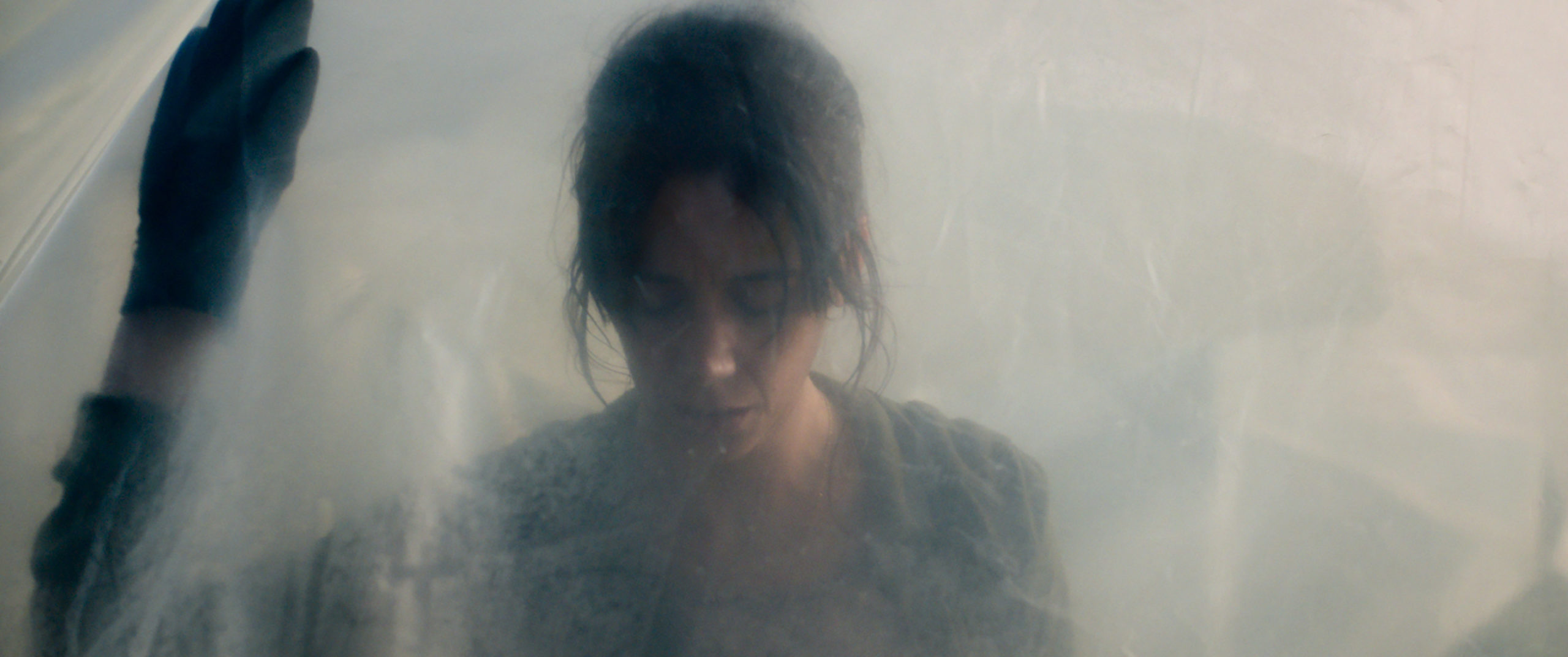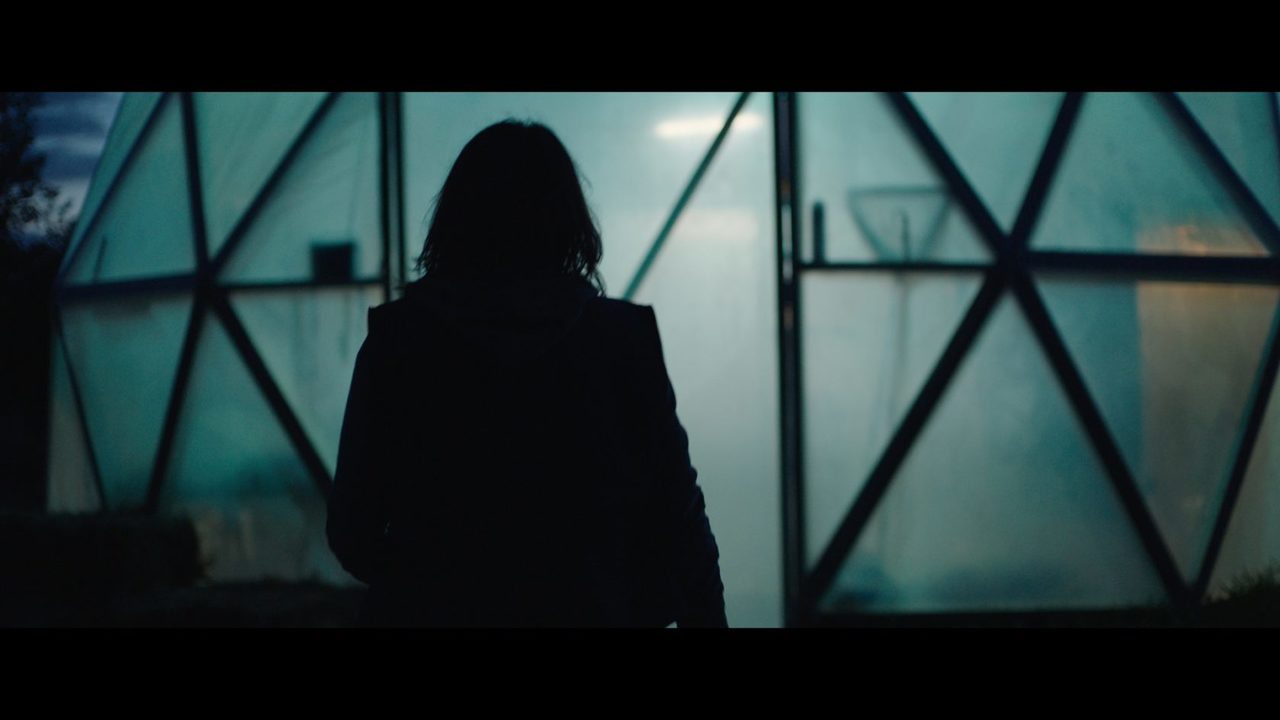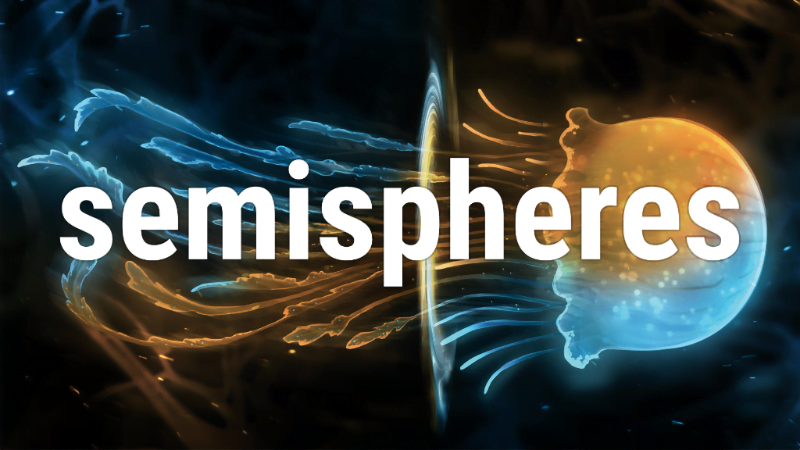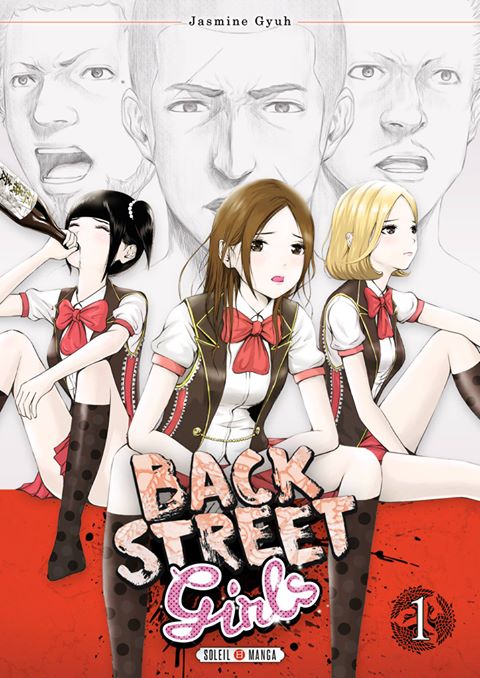After two short films, and a collective film, Just Philippot decides to fly on his own. For the occasion, he signs his first solo feature film: The Cloud. Worn by Suliane Brahim, La Nuée tells the daily life of an edible grasshopper farmer. The latter encounters some difficulties in reconciling her life as a farmer and that of a single mother. While she encounters some money problems, she finds a strange idea to accentuate her performance.
The Cloud: a genre film that mixes styles
Just Philippot signs a strange, surprising, confusing film, which mixes genres with astonishing ease. The Cloud is a unique film, a radical cinema proposal, which looks like nothing. The filmmaker does not hesitate to vary his themes, to propose different, unexpected approaches, and mixes styles with great mastery. The Cloud is both a social drama; an ecological critique; a look at the modern agri-food system; a criticism of animal husbandry, intensive consumption, the sale of meat; while proposing horrific springs and strong references to pagan plagues. And if all this may seem cluttered, it is not, because Just Philippot knows what he wants to talk about and how to talk about it.  The Cloud begins as a family drama, a fairly classic social adventure. The filmmaker depicts the tribulations of this mother, who tries to raise her children, but also her grasshoppers. She struggles to make ends meet. In a highly anticipated first part, the filmmaker takes a look at the difficult reality of the profession of farmer and breeder. It highlights the abandonment felt by this social group, which must fend for itself, without any real help from the State. While fighting against an ever more massive consumer society.
The Cloud begins as a family drama, a fairly classic social adventure. The filmmaker depicts the tribulations of this mother, who tries to raise her children, but also her grasshoppers. She struggles to make ends meet. In a highly anticipated first part, the filmmaker takes a look at the difficult reality of the profession of farmer and breeder. It highlights the abandonment felt by this social group, which must fend for itself, without any real help from the State. While fighting against an ever more massive consumer society.
An ecological adventure
If the family misadventures are too agreed: rebellion of a prepubescent teenager, health problems of the youngest; Ecological springs are much better addressed. Through the fantastic, Just Philippot highlights the ever more intense pressure of this social class, forced to push ever further yields to keep its head above water. By a rather clever parallel with the few horrific springs, the filmmaker points the finger at a profession in agony, which seeks alternatives ever more pushy and dangerous. The film also highlights the paradox of our society, which perverts everything it touches. This alternative and healthy diet exists only through an alienated method of production.  It is also an accusing look that condemns a modern society that is constantly more abusive. A social structure that does not hesitate to push consumption to excess. A critical look at the overconsumption of meat too, a deviance that takes a disturbing turn in The Cloud. He thus criticizes the entire modern agri-food system , whether mass production, which destroys small producers , or import, which prevents clean consumption of resources. The filmmaker seeks to recall the dangers of mass breeding, the poor condition of animals, through an interesting rereading of pagan myths. It is difficult, of course, not to make the link with the ten plagues of Egypt, and the invasion of locusts that consume all natural resources. Just Philippot offers an intelligent , and rather clever, parallel to remind us that the new scourge is undoubtedly Man himself.
It is also an accusing look that condemns a modern society that is constantly more abusive. A social structure that does not hesitate to push consumption to excess. A critical look at the overconsumption of meat too, a deviance that takes a disturbing turn in The Cloud. He thus criticizes the entire modern agri-food system , whether mass production, which destroys small producers , or import, which prevents clean consumption of resources. The filmmaker seeks to recall the dangers of mass breeding, the poor condition of animals, through an interesting rereading of pagan myths. It is difficult, of course, not to make the link with the ten plagues of Egypt, and the invasion of locusts that consume all natural resources. Just Philippot offers an intelligent , and rather clever, parallel to remind us that the new scourge is undoubtedly Man himself.
Some fantastic and horrific springs welcome
Fortunately, the social aspect, which lacks a certain originality, does not drag on, and is especially embellished with fantastic and horrific saving springs. The Cloud does not hesitate to offer a few moments of horror and some visions of horror. The link between the protagonist and her grasshoppers continues to intensify, and offers some muscular, and above all quite off-putting, passages through a calculated crescendo. While Just Philippot may propose a relationship between raising children and grasshoppers, he does not hesitate to put his heroine in tense situations. A strong female figure, brilliantly interpreted by Suliane Brahim, of impeccable accuracy.  Sometimes very creepy, The Cloud confronts the viewer with his deep fears, his disgust for insects and awakens the entomophobia in all of us. The finale, even if it is relatively predictable, is impactful and overall quite impressive. Aided by superb photography, and an electrifying soundtrack, the fantastic springs work perfectly, despite some fairly minor rhythm flaws. The fault to a first part less successful than the second. And even if the denouement sometimes lacks originality, the film generally works quite well. The filmmaker imposes an oppressive atmosphere at all times, magnified by the sickly obsession of his heroine, practically in agony. Through a haunting tone, the director weaves the webs of a well-conducted story, which is certainly worth seeing. The Cloud is a very successful genre film. The footage mixes styles: social drama; ecological criticism; horrific springs; criticism of the modern food system; with a touch of mystical fantasy. All with a certain mastery. https://youtu.be/mkRFQbhn5lM
Sometimes very creepy, The Cloud confronts the viewer with his deep fears, his disgust for insects and awakens the entomophobia in all of us. The finale, even if it is relatively predictable, is impactful and overall quite impressive. Aided by superb photography, and an electrifying soundtrack, the fantastic springs work perfectly, despite some fairly minor rhythm flaws. The fault to a first part less successful than the second. And even if the denouement sometimes lacks originality, the film generally works quite well. The filmmaker imposes an oppressive atmosphere at all times, magnified by the sickly obsession of his heroine, practically in agony. Through a haunting tone, the director weaves the webs of a well-conducted story, which is certainly worth seeing. The Cloud is a very successful genre film. The footage mixes styles: social drama; ecological criticism; horrific springs; criticism of the modern food system; with a touch of mystical fantasy. All with a certain mastery. https://youtu.be/mkRFQbhn5lM







































